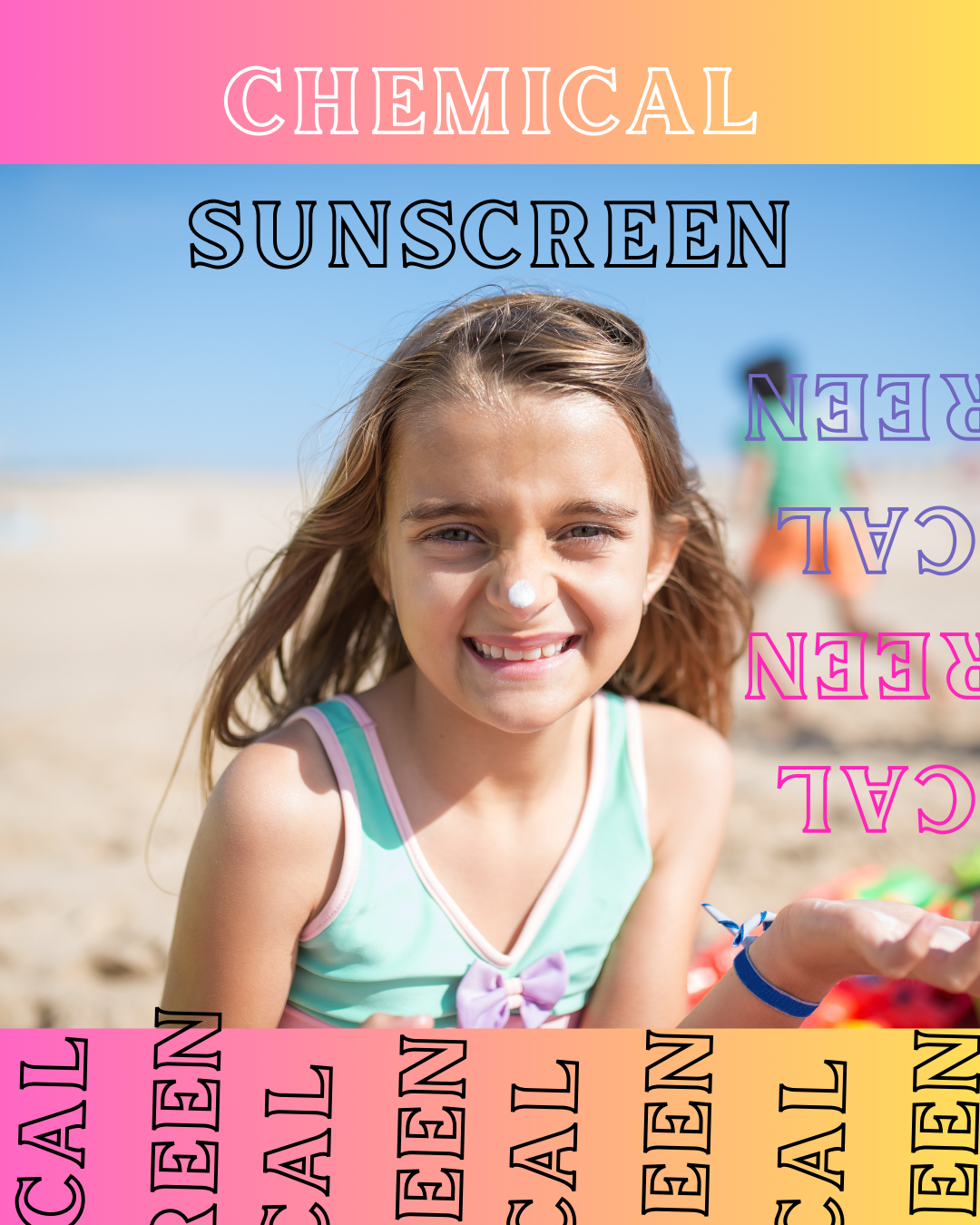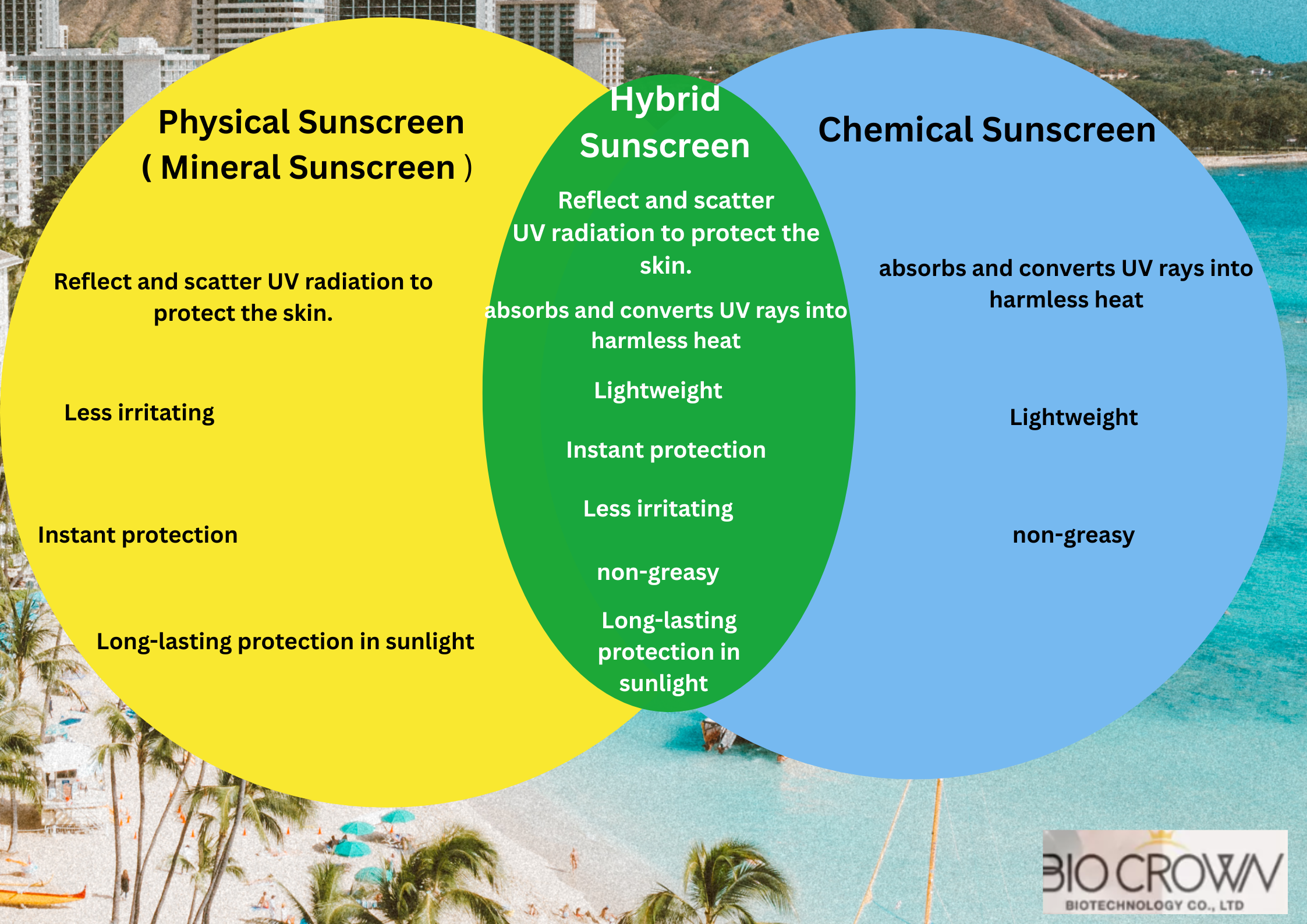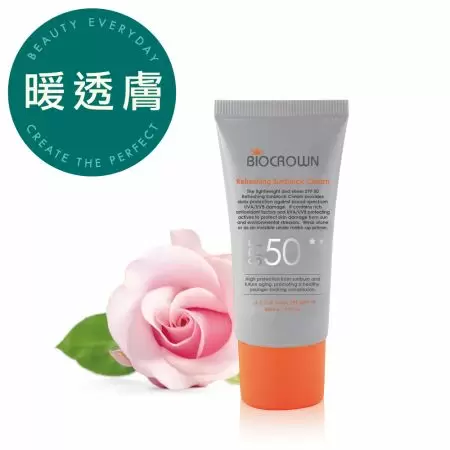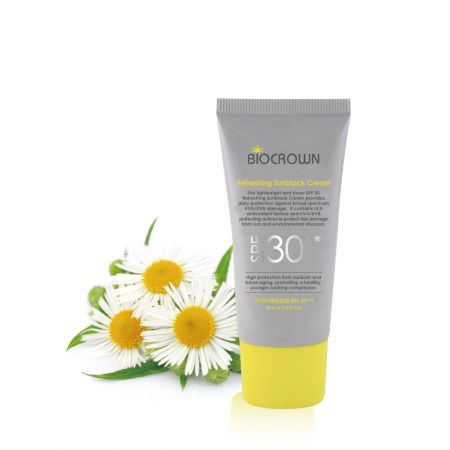
How OEM keeps you ahead of competition : Differences Between Physical, Chemical, and Hybrid sunscreens
Do you take a while to shop for sunscreen? Are the different types and brands of sunscreen confusing you? Choosing between physical, chemical, or hybrid sunscreen? We've all been there, but don't worry—this blog will guide you on which sunscreen is best for you.
Physical sunscreen (Mineral Sunscreen )
Do you have dry, sensitive skin or skin conditions like rosacea, or eczema?
Then, physical sunscreen is the right one for you !
Ingredients : Zinc Oxide and Titanium Dioxide
Zinc Oxide and Titanium Dioxide serve as a protection against UVA and UVB. It physically reflects or scatters UV radiation from penetrating the surface of the skin. Providing instant protection and no wait time compared to chemical sunscreens. It does not clog pores. Although, it does have a thicker consistency and may also leave a white cast。Additionally, it is gentle and less likely to cause irritation, making it suitable for people with eczema or sensitive skin. Also, it lasts longer and it is safer for the environment.
Ingredients : Oxybenzone, Avobenzone, Octinoxate, Octocrylene, salicylates and cinnamates
Unlike physical sunscreens, chemical sunscreens absorb and convert UV rays into harmless heat, which then dissipates. Additionally, chemical sunscreens use a combination of two or more active ingredients because some active ingredients provide UVA protection, while others provide UVB protection. Moreover, they require a waiting time of at least 20–30 minutes before sun exposure. They are often lightweight, have fast spreadability, and blend into the skin when absorbed. They don’t leave a white cast. Due to their transparency, they are easier to apply under makeup.
Hybrid sunscreens
Ingredients: contains a mix of the active ingredients of chemical and physical sunscreen.
Suitable for all skin types
Hybrid sunscreens are a combination of chemical and mineral sunscreens. They both contain mineral and chemical sunscreen ingredients. Lightweight texture, non-greasy and do not leave a white cast. They also provide long-lasting protection. Also, like any other sunscreens, it is still advisable to reapply sunscreens every 2 hours and do not forget to wash off sunscreens to prevent from breaking out and irritation.
In conclusion, sunscreens are not created equal. However, that doesn’t mean that mineral sunscreens are better than chemical sunscreens, and vice versa. There are some who mix mineral and chemical sunscreens together, thinking that it would improve sun protection. Unfortunately, this is not advisable, as this would degrade faster and reduce their effectiveness. Due to modern technology, hybrid sunscreens have already been made available. They are specifically formulated to combine chemical and mineral sunscreens. Having the features of both sunscreens would mean that you won’t have to bother mixing them or choosing between chemical or mineral sunscreen. Moreover, these sunscreens have the best features of both chemical and mineral sunscreens.
Biocrown offers OEM/ODM services for sunscreens. We can assist you in developing your brand’s sunscreens tailored to your preferred ingredients, desired features and functionalities. For more information, visit our website at https://www.biocrown.com.tw/en/index/index.html.
- Best-selling Product
SPF50★★★ Brightening Sunscreen
Imagine the ultimate broad-spectrum sunscreen: lightweight and sheer with SPF 50 protection. This sunscreen not only shields your skin from harmful UV rays...
DetailsRefreshing Sunblock Cream SPF30★★ (Natural)
It has anti-inflammatory and moisturizing properties, and it can soothe the skin.
Details







